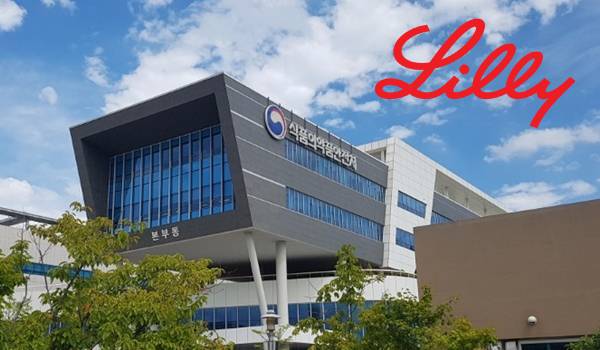In a significant milestone for Korea's pharmaceutical regulatory landscape, global pharmaceutical company Eli Lilly has become the first company to test the waters of the country's newly reformed drug authorization system with its oral breast cancer treatment.

The company recently submitted an approval application for an oral selective estrogen receptor degrader (SERD), imlunestrant, under the local brand name Inluriyo, to the Ministry of Food and Drug Safety (MFDS), marking the inaugural application under regulations that promise faster reviews at premium fees.
Under the new system, implemented on Jan. 1, 2025, pharmaceutical companies must pay a review fee of 410 million won ($283,501) - a 50-fold increase from the previous rates (8.83 million won).
The MFDS said the significant fee hike is designed to support a more robust review infrastructure, including expanded professional staff, enhanced technical resources, and improved administrative capabilities.
The reformed approval process introduces several innovative features designed to streamline the review timeline.
The MFDS aims to cut the overall review period from 410 to 295 days through a series of efficiency-enhancing measures. A key component of this new system is the introduction of pre-submission consultations, allowing pharmaceutical companies to address potential issues before formal submission.
The agency has already held preliminary consultations with Lilly and is finalizing the formation of a dedicated review team for imlunestrant.
The reforms also include significant improvements to the manufacturing inspection process. The good manufacturing practice (GMP) inspection timeline has been dramatically reduced from 12 months to 90 days, addressing a major bottleneck in the previous system.
Another notable innovation in the new system is the introduction of a two-way dialogue during the review process. Companies can now pre-register supplementary materials and request explanatory meetings during both primary and secondary supplementation phases, ensuring clearer communication and reducing the likelihood of misunderstandings that could delay approval.
"This reform positions Korea's regulatory framework closer to global standards," an official at another multinational pharmaceutical company told Korea Biomedical Review. "If the MFDS's expedited approval process proves successful, we anticipate increased interest from more international pharmaceutical companies.”
The improved efficiency in drug approvals could have far-reaching implications for the entire industry, potentially leading to mutual recognition agreements with other major regulatory authorities, she added
The official hinted that such an agreement could be a game-changer for Korean pharmaceutical companies looking to expand globally.
However, not all industry voices share this optimism as local small and medium-sized enterprises (SMEs) shared concerns.
Under the new regulation, SMEs can receive a 50 percent reduction in fees when applying for new drug approval.
However, this does not apply to new drugs imported by the Korean branch of a foreign company or an import agency. Additionally, if an already approved drug is submitted with only a change in dosage or in different injectable forms (such as vials, pens, or ampoules), a 90 percent fee reduction applies.
"Even with the 50 percent reduction, the fee remains astronomical compared to the past and could severely impact smaller biotech companies and startups," warned a senior executive from a mid-sized Korean pharmaceutical company, speaking on condition of anonymity. "While global giants like Lilly can easily absorb these costs, many Korean SMEs might be forced to delay their drug development programs or seek approvals in other markets first.”
There's no guarantee that the promised speed improvements will materialize, as past reforms have sometimes failed to meet expectations, he added.
Meanwhile, imlunestrant represents a potential breakthrough in breast cancer treatment, observers said.
The drug specifically targets patients with estrogen receptor-positive (ER+) and human epidermal growth factor receptor 2-negative (HER2-) advanced breast cancer, a significant patient population in need of new treatment options.
The recent phase 3 EMBER-3 trial results have generated considerable excitement in the oncology community, demonstrating a 38 percent reduction in disease progression rates compared to standard treatment in patients with ESR1 mutations.
The drug's efficacy appears even more promising when used in combination therapy. When administered alongside the CDK4/6 inhibitor Verzenio (ingredient: abemaciclib), the treatment showed a 43 percent reduction in progression risk. The median progression-free survival reached 9.4 months in the combination therapy group, significantly outperforming both the imlunestrant monotherapy group (5.5 months) and the standard endocrine therapy group (3.8 months).
Related articles
- [Top 10 Healthcare News in 2024 ⑩] Drug approval fee soars 50 times to ‘hundreds of millions of won’
- Foreign pharma calls for suspending 50-fold hike in Korea's drug approval fees
- Two experts agree Verzenio increases chances of cure for women with high risk of early breast cancer
- OliX strikes $630 million deal with Lilly for obesity and liver disease drug
- Lilly inks $1.3 bil. RNA-editing deal with Rznomics to expand hearing loss pipeline

